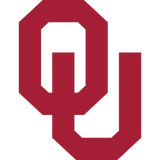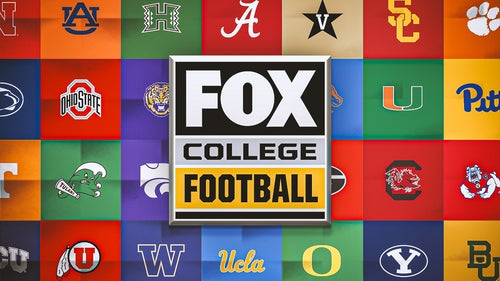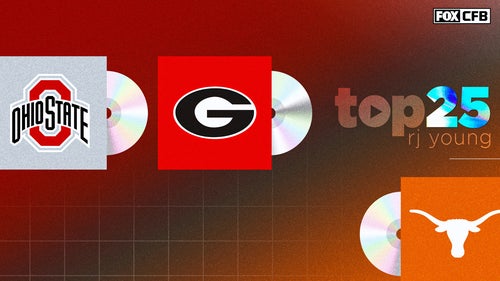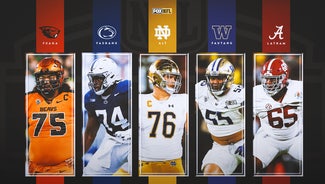
Legendary Oklahoma coach Bob Stoops leaves on his own terms — and on top
Bobby Bowden and Joe Paterno couldn’t manage it. Neither could Steve Spurrier. Or Woody Hayes. Or even Bear Bryant, for that matter.
Bob Stoops on Wednesday achieved something incredibly rare among college football coaching icons: He went out on top.
The timing may be odd, the circumstances unusual. But if the 56-year-old Stoops really is retiring on his own accord after 18 mostly glorious seasons as Oklahoma’s coach, he does so in the most triumphant fashion of any coach in his stratosphere since Nebraska’s Tom Osborne two decades ago.

John David Mercer-USA TODAY Sports
Just last season, Stoops notched his second consecutive Big 12 championship and 11-2 campaign. With Heisman finalist Baker Mayfield and 14 other starters returning, recruiting humming along and a stable staff in place, OU’s program is arguably in its best shape since the Sam Bradford glory years nearly a decade earlier.
But Lincoln Riley, the wunderkind offensive coordinator so integral to that recent uptick, now suddenly gets the keys to that Cadillac while Stoops rides off into the sunset.
“I feel the timing is perfect to hand over the reins,” Stoops said in a statement. “The program is in tremendous shape.”
“The coaching life is like a relay race,” said Stoops, “and I'm thankful for my turn and am confident as I pass the baton.”

Thomas B. Shea-USA TODAY Sports
The criticism, I believe, came in large part because of the incredible and ultimately unsustainable run of dominance he achieved early in his tenure. His 2000 national title came in just his second season. By his sixth, he’d already played for two more. He became known as “Big Game Bob.”
But after the 2003 and ’04 teams both started 12-0 before suffering high-profile blowouts (to Kansas State in the ’03 Big 12 title game and USC in the ’04 BCS championship game), the narrative around Stoops started shifting. Now he was the Coach Who Can’t Win the Big One, even though he kept posting double-digit wins nearly every season and averaged a conference title every 1.8 seasons.
Arguably Stoops’ best team was the Bradford-led 2008 squad that set an NCAA record by averaging 51 points per game and posting five straight 60-plus outputs. But even that season played into the hands of his critics, both because there was controversy whether the Sooners even should have played in that year’s Big 12 title game (they won a three-way tiebreaker in their division) — and then because Meyer’s Florida team held them to 14 points in the title game.
Here’s guessing 20 years from now, there will be no such nitpicking of a career .798 coach who lorded over a major conference for nearly two decades. And a big part of that will be how it ended.
It was barely two years ago that Stoops was mired in the roughest patch of his entire tenure. The Sooners were coming off a humbling 8-5 season in 2014 that ended in a humiliating 40-6 Russell Athletic Bowl loss to Clemson, after which a Tulsa World columnist dared to write, “It’s time for Bob Stoops to go.” Shortly thereafter, Stoops made the difficult but necessary decision to fire offensive coordinator Josh Heupel, the star quarterback on his own 2000 national title team, and replace him with Riley, then a 31-year-old East Carolina offensive coordinator.

Kim Klement-USA TODAY Sports
I visited Norman on many occasions during Stoops’ tenure, including that spring of 2015. It was an unusually turbulent time, just weeks after he’d joined his players in a much-chronicled protest over a racist fraternity video. I came to ask about that, but also the upheaval in his program.
Stoops was cordial, confident but also a tad defensive that afternoon. The questions over the way the previous season ended were clearly wearing on him. He kept rattling off reminders of all his 10-win seasons and Big 12 championships. Clearly, he felt he’d earned enough faith that fans and media would necessarily trust he’s got it all under control.
But even Stoops’ one and only boss, AD Joe Castiglione, expressed a slight hint of concern when I visited with him that same afternoon.
“Just the feel of that [bowl] game, I can’t say I’ve seen that before in all the years we’ve been together,” Castiglione told me. “It just didn’t look like Oklahoma."

John David Mercer-USA TODAY Sports
One might theorize that Stoops put off this announcement until June in part to distance himself from that potentially legacy-staining controversy. That’s not likely. While Stoops certainly had some indisputably thin skin when it came to criticism, he rarely let it influence his decisions.
In walking away at 56, Stoops continues something of an OU coaching tradition. Bud Wilkinson, who led the Sooners on an NCAA-record 47-game winning streak in the ‘50s, hung it up after 17 seasons at the ripe age of 47. Barry Switzer, the man whose OU career wins record Stoops eventually passed, did not go on his own accord, but nonetheless he was just 51 at the time his scandal-marred tenure came to an end in 1988.
Switzer, of course, went on to a second act as Super Bowl-champion coach of the Cowboys. It will be interesting to see whether Stoops truly walks away from coaching for good — or whether, like so many before him, he gets restless after just a year or two and winds up back on a sideline.
Either way, he’s already cemented his eventual place in the college Hall of Fame for his run at Oklahoma. He ended it sooner than any of us would have expected. But he ended it on top.








































































































































